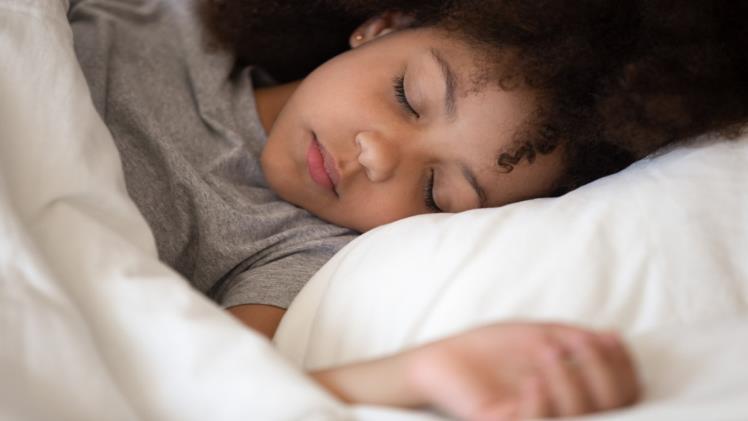Sleep is essential for everyone, but it’s especially critical for children, as it plays a vital role in their physical and cognitive development. The amount of sleep required varies by age, and 9-year-olds, being in the midst of their formative years, have specific sleep needs. In this article, we’ll explore the question of how much sleep 9-year-olds need and why it is crucial for their overall well-being.
- The Recommended Amount of Sleep
The National Sleep Foundation recommends that 9-year-old children get around 9 to 11 hours of sleep per night. However, this isn’t a one-size-fits-all rule, as individual sleep needs can vary. Some 9-year-olds may thrive with 9 hours of sleep, while others might require closer to 11 hours to function at their best.
- Importance of Sleep for 9-Year-Olds
Proper sleep is essential for the physical, emotional, and cognitive development of children. Here’s why it’s crucial for 9-year-olds:
- Physical Growth: Growth hormone is primarily released during deep sleep, and this hormone is essential for a child’s physical development. Adequate sleep helps children reach their full growth potential.
- Cognitive Function: Sleep is vital for memory consolidation, problem-solving, and learning. A well-rested child is more likely to excel in school, focus on tasks, and perform better academically.
- Emotional Regulation: Sufficient sleep is linked to better emotional regulation and mental well-being. Children who get enough rest are less likely to experience mood swings, anxiety, or behavioral issues.
- Immune Health: Sleep plays a critical role in maintaining a robust immune system. A well-rested child is better equipped to fight off illnesses and recover more quickly.
- Signs of Sleep Deprivation
It’s crucial for parents and caregivers to recognize signs of sleep deprivation in 9-year-olds. Common indicators may include:
- Difficulty Waking Up: Struggling to get out of bed in the morning can be a sign that a child isn’t getting enough sleep.
- Daytime Sleepiness: If your child is often tired during the day, this can be a clear sign of sleep deprivation. They may even fall asleep in class or during other activities.
- Irritability: Sleep-deprived children are more likely to be irritable, moody, and have difficulty managing their emotions.
- Poor Academic Performance: If a child’s academic performance begins to decline, it could be linked to insufficient sleep.
- Lack of Concentration: Sleep deprivation can impair a child’s ability to concentrate, focus, and solve problems.
- Establishing a Healthy Sleep Routine
To ensure that 9-year-olds get the recommended amount of sleep, it’s essential to establish a consistent and healthy sleep routine. Here are some tips to help create a conducive sleep environment:
- Set a Regular Bedtime: Establish a consistent bedtime and wake-up time, even on weekends. This helps regulate the body’s internal clock.
- Create a Comfortable Sleep Space: Ensure that your child’s bedroom is quiet, dark, and at a comfortable temperature. A cozy and inviting sleep environment can make bedtime more appealing.
- Limit Screen Time: Avoid screens (TV, computer, tablets, and smartphones) at least one hour before bedtime. The blue light emitted from screens can interfere with the body’s production of melatonin, a hormone that regulates sleep.
- Encourage Relaxation: Establish calming pre-sleep routines like reading a book, taking a warm bath, or practicing deep breathing exercises. These activities help signal to the body that it’s time to wind down.
- Monitor Diet: Limit caffeine and sugary snacks in the evening, as these can interfere with sleep.
- Adjusting for Individual Needs
Remember that each child is unique, and their sleep needs may vary. Some 9-year-olds may thrive with slightly less sleep, while others may require more. The key is to observe your child’s behavior and well-being. If they show signs of sleep deprivation, consider adjusting their bedtime or sleep routine accordingly.
- The Role of Parents and Caregivers
Parents and caregivers play a vital role in ensuring that 9-year-olds get enough sleep. Here are some responsibilities:
- Encourage a Consistent Schedule: Children often thrive on routines. Be consistent with bedtime and wake-up times to help regulate their body clock.
- Be a Role Model: Children learn by example. Demonstrating good sleep habits yourself can have a positive influence on your child’s sleep patterns.
- Address Sleep Problems: If your child consistently struggles with sleep issues, such as nightmares, night sweats, or sleep apnea, consult a healthcare professional for guidance and support.
- Open Communication: Encourage your child to express their feelings and concerns related to sleep. Address any anxieties or fears they may have about bedtime.
- Conclusion
Proper sleep is fundamental for the growth, development, and overall well-being of 9-year-olds. While the recommended amount of sleep for this age group is around 9 to 11 hours per night, it’s crucial to recognize individual variations in sleep needs. By establishing a healthy sleep routine, paying attention to signs of sleep deprivation, and being involved in your child’s sleep habits, you can ensure that they get the rest they need to thrive physically, emotionally, and academically. A well-rested child is a happy and healthy child, ready to take on the challenges of their day.

